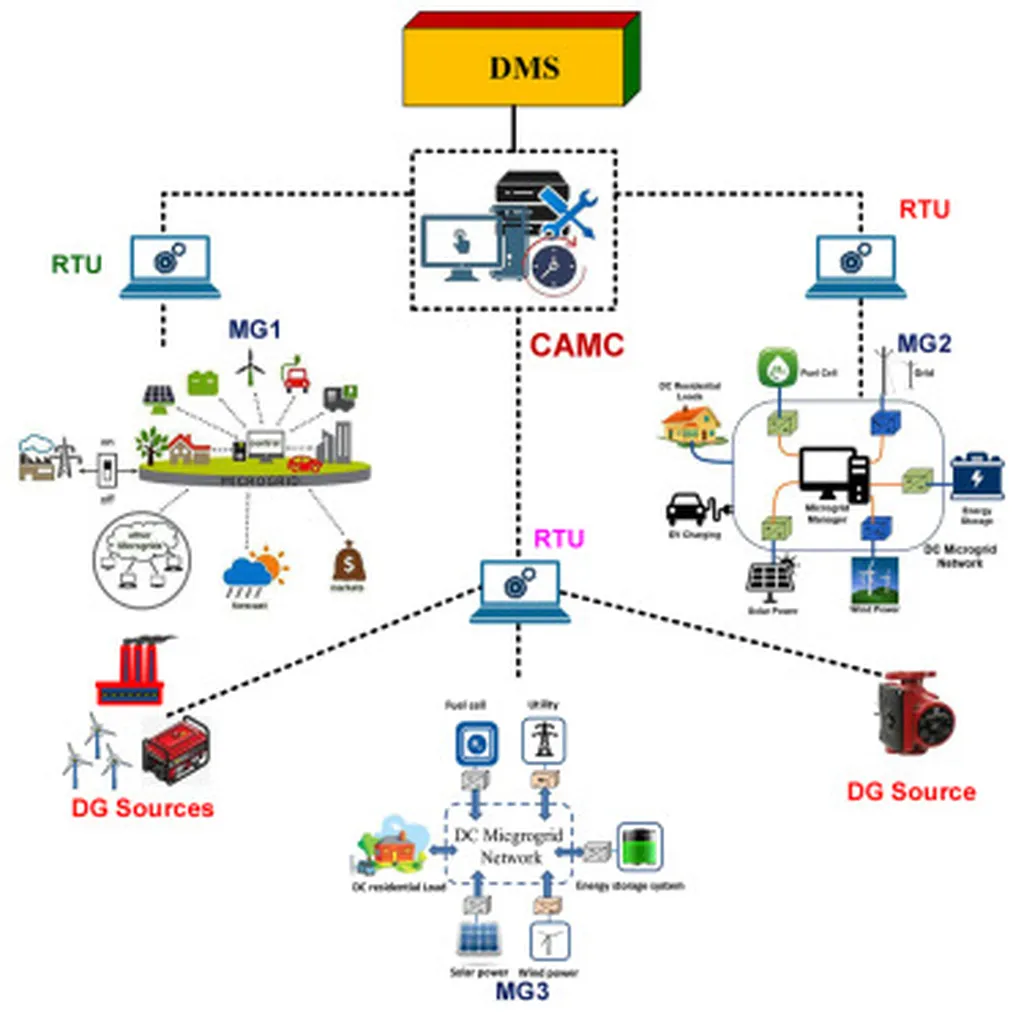In the rapidly evolving energy sector, the integration of renewable energy sources and the optimization of energy storage systems are becoming increasingly critical. A recent study published in the journal *Measurement and Control* (originally published in ‘Diance yu yibiao’) by LIU Daobing from the School of Electrical and New Energy at China Three Gorges University sheds light on a novel approach to enhancing the efficiency and economic viability of multi-microgrid systems through shared energy storage.
The research focuses on the cooperative operation between shared energy storage systems and multiple microgrids, aiming to maximize the benefits for all parties involved. By establishing an optimal operation model for power trading between shared energy storage subjects and microgrid subjects, the study introduces a cooperative game theory framework to describe the interactions within this energy system.
“Our goal was to create a model that not only promotes the consumption of renewable energy but also reduces the overall operation costs of the system,” said LIU Daobing, the lead author of the study. “By introducing cooperative game theory, we can effectively negotiate power transaction payments and ensure that each entity within the system benefits from the cooperation.”
The study proposes an innovative power transaction payment negotiation algorithm based on the alternating direction multiplier method. This algorithm iteratively solves the transaction payments between shared energy storage and microgrid entities, ensuring a fair and efficient distribution of resources.
The simulation results of the study demonstrate that cooperative operation between shared energy storage and microgrids can significantly enhance the local consumption of renewable energy. This, in turn, improves the income for each subject involved, making the system more economically viable and sustainable.
The implications of this research are far-reaching for the energy sector. As the world shifts towards renewable energy sources, the need for efficient energy storage and distribution systems becomes paramount. The cooperative game theory approach proposed by LIU Daobing and his team offers a promising solution to optimize these systems, potentially revolutionizing the way energy is shared and utilized within microgrids.
“This research provides a robust framework for future developments in the field of energy storage and microgrid systems,” said a senior energy analyst who reviewed the study. “By promoting local consumption of renewable energy and improving economic outcomes, it paves the way for more sustainable and efficient energy solutions.”
As the energy sector continues to evolve, the insights gained from this study could play a crucial role in shaping the future of energy storage and distribution. The cooperative game theory approach offers a novel and effective method for optimizing multi-microgrid systems, ensuring that the transition to renewable energy is both efficient and economically viable.

